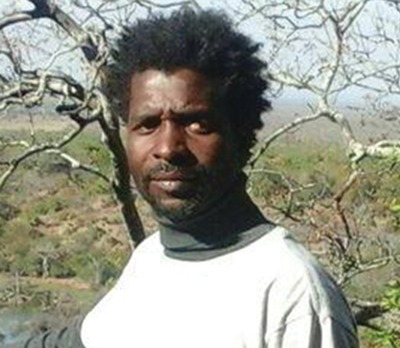
Stir The Pot :Paidamoyo Muzulu
LAST week marked the fifth anniversary of the mysterious death of Solomon Mujuru (Rex Nhongo) – a war hero, former military commander, politician, business mogul and Zanu PF kingmaker until his demise. His death sent shock waves across the political spectrum, but more importantly changed Zimbabwe’s course of history.
Mujuru, who was known as a colourful personality, but rarely known, was introduced to the world by academic Blessing Miles Tendi in his book – The Army and Politics in Zimbabwe, Mujuru the Liberation Fighter and Kingmaker – published early this year.
The book gives an insight into the life of the man – one of the few who stood up to the late former President Robert Mugabe at the height of his powers, fought with every inch of life to stop Emmerson Mnangagwa from succeeding Mugabe and the man who subsequently amassed assets spanning across many sectors of the economy worth in millions of dollars.
It may not be clear why Mujuru never wanted Mnangagwa to succeed Mugabe, but Tendi states that the former military commander was certain in his mind that he should succeed Mugabe – the man he installed as Zanu PF leader in 1979 through a devious manipulation of the liberation movement military hierarchy.
War hero Wilfred Mhanda also known as Dzinashe Machingura is quoted in the book speaking about how Mugabe became Zanu leader: “Nhongo then submitted our list, with Mugabe at the top. (Samora) Machel leapt from his chair in disgust. He was not clearly happy that we had included Mugabe, let alone as the leader.” (Page 82).
Joice Mujuru, Solomon’s second wife and former Vice-President in Mugabe’s administration is quoted in the book (page 84) hinting that Mujuru may have promoted the rise of Mugabe because they were kinsmen. She says: “My husband and Mugabe were distantly related …. But Solomon also said Mugabe as his distant relative also influenced his decision to make sure Mugabe became leader.”
It is the aforementioned relationship and influence in having Mugabe become leader that Mujuru later in 2004 used to have his wife – Joice – rise to become a deputy to Mugabe in the party and subsequently Vice-President of the Republic.
- Chamisa under fire over US$120K donation
- Mavhunga puts DeMbare into Chibuku quarterfinals
- Pension funds bet on Cabora Bassa oilfields
- Councils defy govt fire tender directive
Keep Reading
During the 2004 Zanu PF congress, Mujuru actively campaigned for his wife to become VP after his preferred candidate Sydney Sekeramayi had turned down the offer. Mujuru is said to have retorted: “Sekeremayi does not want the leadership, so I am now taking my testicles from him and placing them next to my wife (page 243).”
Mujuru had earlier in 1989 stopped Mugabe dead in his tracks to constitutionalise a one-party state because of his aversion to communism.
Zipra intelligence supremo and war hero Dumiso Dabengwa is quoted on the matter saying: “Rex did not subscribe to communist ideals and he thought Mugabe was becoming too powerful for his liking.”
The aforementioned points to Mujuru being a capitalist who loved wealth accumulation and knew he could not make it in a communist country. Tendi wrote, “Nhongo hated being poor and had long desired to better himself financially, hence his obscure monetary dealings in London (page 227).”
It is from that premise that Mujuru started primitive accumulation of wealth using his position in the military. He started with Coin Security Group, a security company that provided security at local and international airports. He also had a business relationship with British tycoon Tiny Rowland of the Lonrho fame.
The general was involved in arms deals with Graham Wilson, a former member of the Rhodesian Special Air Service.
“Nhongo leveraged his influence in Zanu PF and the State to facilitate entry into Zimbabwe by a host of external business people, earning him handsome facilitation fees in activities that undermined the integrity in public life of the leadership code …. (page 228).”
It is in business where Mujuru started his rivalry with Mnangagwa over control of Zimasco, a company that owned large swathes of chrome concessions in Zimbabwe.
Besides business rivalry, Mujuru opposed Mnangagwa’s rise because “the general felt after a hard person like Mugabe, the country needed somebody different. The general did not trust Mnangagwa with power. The general felt he (Mnangagwa) wanted power too much, somebody like that would be a problem (page 241)”.
Mujuru told a confidante that: “Mnangagwa will only become President of Zimbabwe over my dead body. He swore that Mnangagwa would never be President if he was alive.”
The general met a mysterious death in a fire at his house, but he had many political and business rivals that his death was treated as foul play. He had enjoyed several sexual liaisons with fellow military commanders’ wives and was brusque in the manner he sometimes took over mines and farms, leaving a trail of men with wounded egos and holes in his wake.
Mujuru’s love of fine whisky and womanising is legendary. However, some felt it was the trauma of war – living without knowing when one would meet their demise – that propelled him to live in the moment.
While the book does not complete the investigations into his death and this may call for a sequel to the book, it gives us the first encounter of Mujuru’s life and a synopsis into where the current ructions in Zanu PF started, including the regionalism, tribalism and pointers to some of the personalities today at the helm of the republic.











